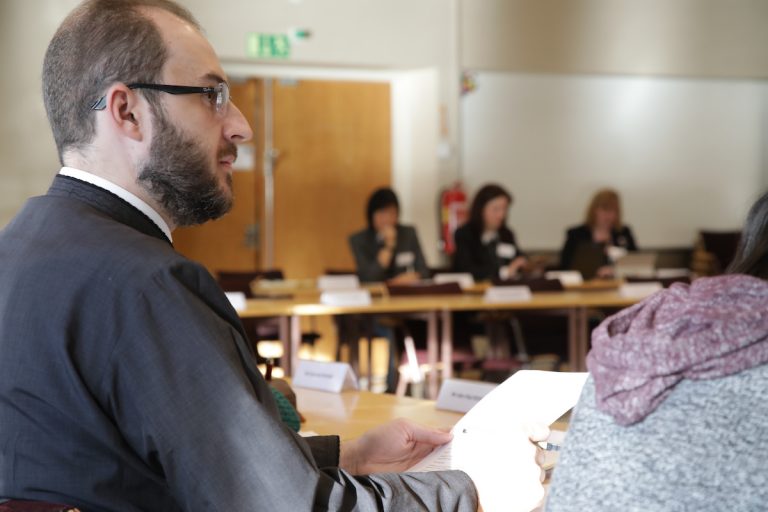
The World Council of Churches Commission on World Mission and Evangelism (CWME) gathered in Helsinki, Finland on 16-22 May 2019 to evaluate and reflect on the Conference of World Mission and Evangelism that took place in Arusha (Tanzania) in March 2018 and its future work. The May 2019 CWME meeting was hosted by the Evangelical Lutheran Church of Finland (ELCF).
In opening remarks, Dr Agnes Aboum, moderator of the WCC Central Committee, reflected on what she described on as “landmark” conference in Arusha, which drew together more than 1,000 people and resulted in an Arusha Call to Discipleship. “There are themes in the Arusha conference that provide linkages with the Pilgrimage of Justice and Peace: discourses around the regions, countries and churches,” said Abuom. “Despite the intersection with the Pilgrimage of Justice and Peace, perspectives and approaches may differ.”
The Arusha Call was the outcome of the Conference on World Mission and Evangelism held in Tanzania in March 2018, the largest conference of its kind since 1910.
The ecumenical movement itself is rooted in the mission movement, said WCC general secretary Rev. Dr Olav Fykse Tveit, who added that the Arusha conference allowed people to share vastly different dimensions of spirituality. “I would even say we all are sharing the different dimensions of being the church: What does it mean to follow Jesus Christ today in the many contexts of the world?”
The CWME meeting was hosted by the Evangelical Lutheran Church of Finland and Archbishop Dr Tapio Luoma, said, in his word of welcome, “It’s an honor to host this significant meeting and reflect on the call to transforming discipleship.”
Metropolitan Dr Geevarghese Mor Coorilos, moderator of the commission, explained that the commission is mandated to organize a mission conference roughly once every 10 years. “One of the major focuses of this meeting in Helsinki is to look at the conference by way of evaluating it,” he said. “It is also to look at some of the insights it produced. We are also here to look beyond Arusha, to the theme of the next WCC Assembly which will take place in Germany in 2021.”
The theme for the 2021 WCC assembly is “Christ’s love moves the world to reconciliation and unity.”
Rev. Dr Janet Corlett, vice moderator for the commission, reflected that most of the people gathered in Helsinki had not met since the Arusha conference. “What does transforming discipleship means for us personally, for our churches, for our countries?” she asked. “Was it just a nice experience or has it changed us? Will it change anything? The Arusha Call was the outcome, the consensus of the meeting, and I believe it was a very prophetic call.”
Bishop Dr Simo Peura, Evangelical Lutheran Church of Finland, represented the local host of the meeting at the book launch, saying this was the most significant ecumenical meeting held in Finland for many years. “It is also a platform for our church and all the churches in Finland to learn from the mission experience from different parts of the world,” he said.
Fr Richard Nnyombi, a commission member, said he believed that the location of the March conference in Arusha was not by chance or accident. “The context of the conference in Arusha means God wanted to remind us of the centrality of peace, justice and reconciliation as churches and followers of Christ,” he said. “Every day I ask: what am I going to do to bring the message of Arusha to my brothers and sisters, and to my church?”
Rev. Dr Risto Jukko, director of the commission, addressed the question: Why does this meeting take place in Helsinki? “I see this meeting as a link of along chain of an ecumenical movement which began in 1910,” he said. “These nordic countries have a long, long tradition in mission.”